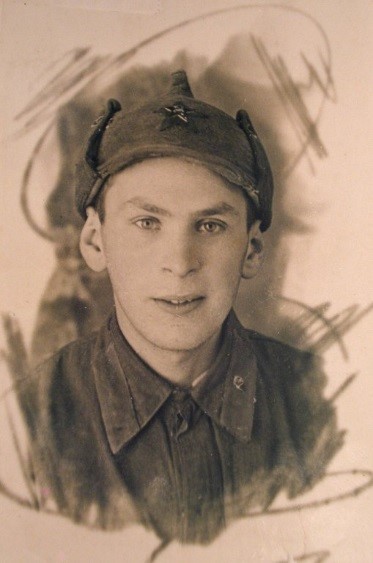Ben-Tsion Geltman was born in 1921 in Irkutsk, in Eastern Siberia. His father Zalman Geltman had smikha (rabbinic ordination), but when his son was born, he had to change the profession from rabbi to that of bookkeeper. Ben-Tsion's mother Pesye (Berta) was a daughter of Avraham Srubinskii, the chief rabbi of Krasnoiarsk, in Eastern Siberia. In 1920 Avraham Srubinskii, his wife and two younger children migrated to the USA, where they shortened their last name to Rubin. Abraham Rubin served as a rabbi in New Jersey. In the early 1920s, Zalman Geltman and his family moved from Irkutsk to Pavlovsk, a suburb of St. Petersburg, where Ben-Tsion graduated from high school. The fact that his mother had close relatives abroad affected the fate of the Geltmans in the Soviet Union. Zalman died from a stroke in 1957 having come home after being interrogated by the KGB about his relatives abroad. At a young age Ben-Tsion received a traditional education and learned to write in Hebrew, as well as Russian.
Ben-Tsion was 16 years old when he was admitted to the department of biology of Leningrad University. Probably at the end of the 1930s, he was drafted into the Red Army (in the photograph included in this entry Geltman is shown wearing the old, pre-1940 uniform). He was assigned to the Soviet-German front in 1941 with the rank of lieutenant and served as a platoon commander in the 876th Howitzer Regiment. In the summer of 1943, Ben-Tsion took part in the Kursk Salient operation, the greatest "meat-grinder" of World War II. He was seriously wounded and sent to a military hospital. In the fall of that year he returned to the front. In October 1943, he was reported as "missing in action," which usually indicated that his body had not been found.
Ben-Tsion Geltman's parents waited for their "missing" son until the end of the war and many years thereafter. To commemorate him, his niece Zlata Razdolina (Rozenfeld), a well-known Russian-Israeli composer, named her second son Ben-Tsion. Benzion Laskin is now a rabbi in Brooklyn.







